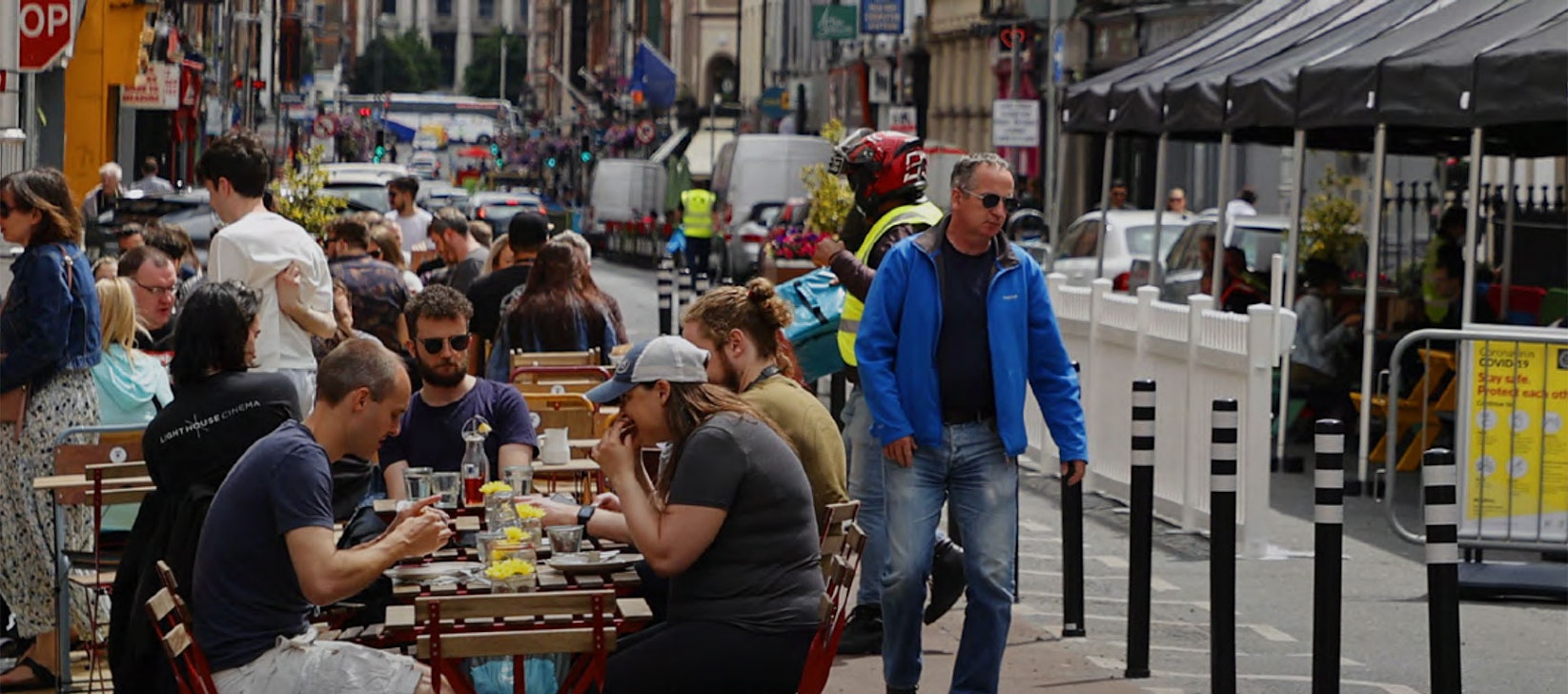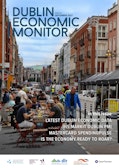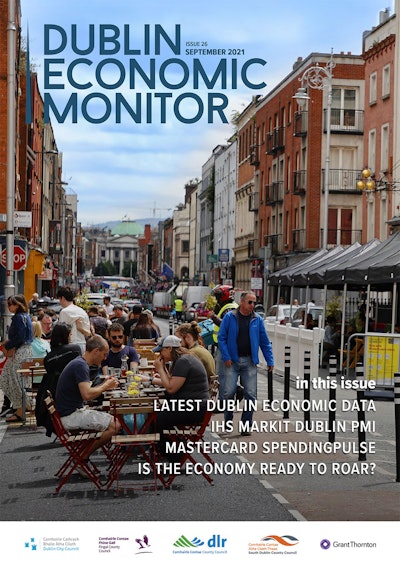The latest Dublin Economic Monitor (DEM), published this morning by the four Dublin Local Authorities, gives solid evidence of an economy which is staging a strong recovery from the worst effects of the Covid-19 pandemic.
Dublin’s IHS Markit Purchasing Managers’ Index (PMI) shows how business activity in the Capital ramped up in Q2 2021. The easing of lockdown restrictions contributed to the strongest index reading (60.2) since the final quarter of 2015. Growth was recorded across all three of the monitored sectors of services, manufacturing and construction. An overall YoY increase of 35 index points underscores the significant progress made since the depths of the pandemic, with expansions in new orders and employment highlighting the positive sentiment amongst Dublin businesses.
According to data from MasterCard, retail spending rose by 5.1% QoQ (SA) in Dublin in Q2 and was no doubt aided by the lifting of restrictions on domestic travel and commercial activity. The main trends were towards bricks-and-mortar outlets with expenditure in the Discretionary and Entertainment categories expanding QoQ by 61% and 21.3% respectively – albeit from historically low bases. Growth in Household Goods expenditure was also exceptionally strong, rising by 20.6% QoQ and underlining the continued confidence of Dublin consumers to spend on ‘big ticket’ items.
Dublin’s labour market continued on a path of recovery through to August 2021. Data from Indeed shows that job postings in the Capital rebounded in August to more than exceed the pre-pandemic baseline, while Pandemic Unemployment Payment recipient numbers fell to below 61,000 in the same month – the lowest level since the scheme was introduced.
Residential construction in Dublin experienced a boom in Q2 2021 with 5,000 housing commencements. This was the highest quarterly level since the mid-2000s, and followed an exceptionally weak start to the year. Housing completions also increased to 1,624 (SA) in the quarter and will have provided the highly active housing market with much-needed supply.
Tourism and hospitality in Dublin, which are the focus of the special feature articles in this issue, showed initial signs of revival in summer 2021. The Capital’s hotel market staged an initial fightback with occupancy rates rising to 43.1% in July, up considerably from the low point of 5.9% in June 2020. Restaurant bookings also rebounded and were up by 45.4%, aided by the return of outdoor and indoor dining over the summer months.
Commenting on the DEM’s findings, Andrew Webb, Chief Economist with Grant Thornton, said:
“A stronger sense of optimism is enveloping the Dublin economy now that final restrictions are lifting. Supporting the sense of increased positivity is evidence from Grant Thornton’s recent business survey which shows that 76% of Irish businesses are optimistic about the outlook for the economy over the coming 12 months. Not only are firms increasingly optimistic, four in ten Irish businesses are expecting to increase employment. The outworking of this upbeat assessment has led the EU Commission to forecast that the Irish economy will grow by 7.2% in 2021, and this will be expected to further boost economic activity in the Capital.”
The Dublin Economic Monitor is produced by Grant Thornton on behalf of the four Dublin Local Authorities to provide timely, reliable data and commentary on the economic landscape of the Dublin region. It covers 18 key indicators, consumer spending data from the MasterCard SpendingPulse™ and provides regular insights into different aspects of Dublin’s economy.


